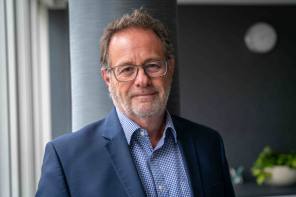

While Ascot Lloyd has 21,000 clients, more than 500 employees and £10bn in assets under administration, Kerr is looking beyond the numbers.
Explaining his goals for the consolidator, he says: “I would like us to become a household name. There aren’t many household names in the [independent financial adviser] space, and I think this is the journey we would like to go on.”
In the meantime, the numbers look likely to rise, as he explains: “I’m seeing a lot more businesses come to market. Around 70 potential opportunities have landed on my desk in the last quarter.”
There is a lot of competition for these businesses, with Kerr counting around 15 to 20 private equity businesses and platforms on the acquisition trail, but he is upbeat about it:
“We’ve been doing this since 2013, so it’s validating to see all this activity. It confirms we are doing the right thing.”
And while there are more buyers, they are not necessarily chasing the same opportunities: “We primarily get our inbound enquiries from brokers and we know that there are more interested parties for every opportunity that is presented to us,” says Kerr. “Brokers definitely have more ‘mouths to feed’ in the buying community.”
But the filtering process undertaken by their brokers picks out those that specifically match both Ascot Lloyd and the seller’s criteria: “It means we’re not all ‘bun-fighting’ over the same assets,” Kerr confirms.
Market drivers
So, what is generating all this activity in the market at the moment? Kerr observes a range of factors, including the pandemic: “The drivers for people to sell their firms at the moment are largely what they were previously – rising regulatory and [professional indemnity] costs, succession planning and difficulties in hiring staff.
"Adapting to technology and the post-Covid environment are also factors causing more owners to consider selling their business, as is the possibility of changes to capital gains tax.”
Some factors are more front-of-mind than others, however: “Conversations about increased regulatory and PI costs crop up repeatedly, particularly when advisers see their PI costs double or if they struggle to get a new quote.
"Succession planning comes up a lot too. Some individuals are further along that path than others, though. While some are years away from wanting to retire, others are thinking they want to retire in six months and that this is the right opportunity to do so.”
The increased number of buyers is having an encouraging effect on sellers too: “It’s a fact of this competitive market that they can get a little bit more for their business at the moment, simply due to the number of buyers out there,” he reflects.
Nevertheless, Ascot Lloyd has completed 12 acquisitions in the past 12 months. But they do not happen overnight, says Kerr: “Due diligence takes two to three months usually, depending on whether it’s an asset or a share purchase.
"It also depends on the volume and flow of the information we receive. If we get everything we need on day one, which does sometimes happen, we can get everything done in a six to eight-week window.”
The acquisitions have not always been easy, though, as he acknowledges: “We’ve learned a lot of lessons – frankly, the hard way. No two are the same, and you learn a lot by doing.
"The challenge for us is to ensure we take those learnings into the next acquisition and improve the journey every time.
“The lessons learned largely relate to integration challenges – which can easily be overlooked, but which are important to ensure a business can get up and running quickly – such as the regulatory approval process; managing staff training during Covid-19; and understanding which providers can be more challenging when novating clients over to Ascot Lloyd.”
Despite the challenges, Kerr finds the change of role stimulating, having moved from advising on acquisitions to developing and nurturing them: “IFA businesses are people businesses and the most important thing in an acquisition is managing the journey for the clients and the staff.
“When you’re looking into an acquisition from the outside, as an external adviser, this is not generally an area of focus. So, seeing each acquisition through from the initial exploratory conversations through to integrating the business is rewarding and fulfilling.”
When it comes to the geographical locations of potential acquisitions, Kerr reports that he has done a lot of business in Scotland and jokingly puts that down to Scots liking to do business with Scots.
However, he emphasises that he is keen to do business throughout the UK: “We’ve got a footprint from Aberdeen, right down to the south coast of England.”
Another Scottish city is on the wish list, though, as he explains: “Edinburgh is a place that we’d like to have a presence, as a major city and financial centre, but there are other places around the UK that would also be particularly attractive to us.”
Looking ahead to 2022, Kerr sees more of the same:
“We want to continue on the journey we’ve been on. I’d like us to be a leader in the sector, in terms of our adoption of technology, best practice, compliance and using our inorganic strategy as well as organic growth to get us to the size where we can be a leading IFA.”
Fiona Nicolson is acting deputy features editor of FTAdviaer



